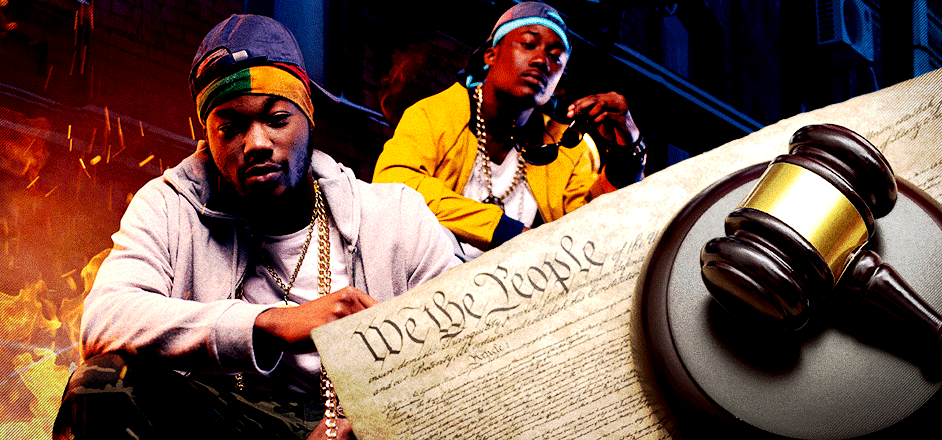Hip-hop is the most lyrically dense genre of music and by far the most controversial. From gangster rap to drill music, the uninitiated often find the lyrical content shocking. Sometimes, that is the point. It’s not just rhymes though. Rap and hip-hop are vehicles for storytelling and exposing what’s really happening in the streets. Hood tales detailing all manner of illegal activity and boastful tracks about smoking on the dead opps have become commonplace among this generation of gangster rappers. Getting into legal trouble can build street cred for young artists, but is it fair for prosecutors to use their own songs against them?
Across the country, gang affiliated rappers are gunned down at an alarming rate that dwarfs the golden age of hip-hop, which was also plagued with violence. This finds its way into the music as a means of not only expressing the trauma, but also to goad on rivals, promote beef, and gain attention through revenge, however negative and damaging. It’s become so pervasive that prosecutors in several states have used specific lyrics to tie rappers to crimes. Bragging about conquests and exaggerating their criminal clout, including drugs, violence, and gang ties is an ingrained part of hip-hop culture. But leaving the door open for courts to use songs as evidence could lead to wild speculation and encourage self-censorship.
According to the New York Post, lawmakers in NY are now attempting to stop courts from using song lyrics as evidence in court. As it stands now, rap lyrics are admissible and have popped up in high profile cases like Tekashi 6ixn9ne’s infamous snitch fest. The bill, referred to as “Rap Music on Trial” legislation is being pushed by New York Senators Brad Hoylman and Jamaal Bailey, who is quoted as saying: “The admission of art as criminal evidence only serves to erode this fundamental right, and the use of rap and hip-hop lyrics in particular is emblematic of the systemic racism that permeates our criminal justice system.” It would prevent prosecutors from using defendants’ “creative or artistic expression” against them unless there is a clear and convincing proof of the works’ connection to the crime.
The culture sees this as an important issue. One YouTube channel features a white middle aged lawyer named Bruce Rivers who watches rap music videos and gives legal advice, mostly focusing on the dangers of self-snitching while reciting slanged out lyrics to hilarious effect. Toting guns in videos while describing committing crimes in detail is a hip-hop cliche. If music isn’t protected by the First Amendment, what other forms of creative expression could be seen as criminal?
“Rap on Trial: Race, Lyrics, and Guilt in America,” author Andrea Dennis, who is a professor at the University of Georgia School of Law told The New Yorker: “We have searched widely, and, based on our research, rap is the only fictional art form treated this way… No other musical genre and no other art is used in the same way or to the same extent.” This might be because it is the only art form that openly embraces masterpieces about murder that are all too real.
Despite the blatantly real confessions being recorded on wax, criminal cases should be strong enough that they don’t need to use a song in court to convict. Rappers are avid social media users that often incriminate themselves in other ways, like posting about their exploits online. But at the same time, it might be a good idea to follow the number one rule of organized crime: the code of silence.



Leave a Reply